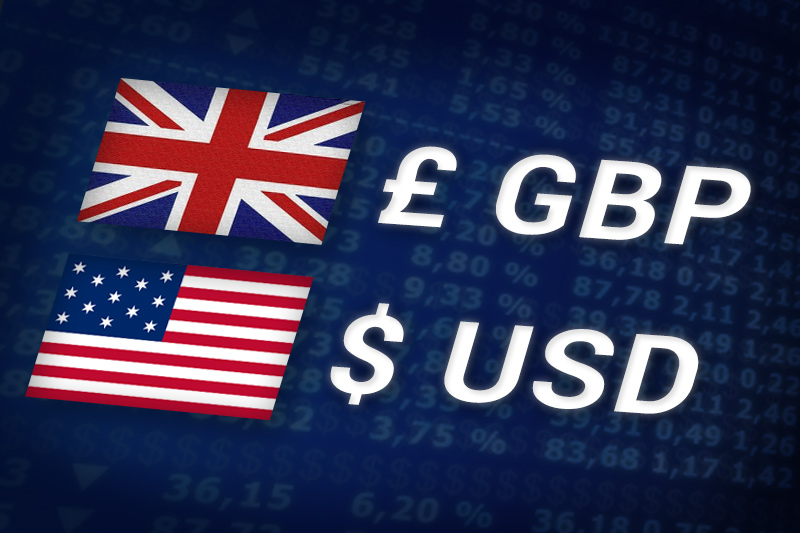Investing.com – The pound trimmed losses against the U.S. dollar on Monday, pulling back from the lowest level in seven weeks following comments made by Bank of England Monetary Policy Committee member Andrew Sentence, however worries over the pace of the U.K. economic recovery weighed.
GBP/USD hit 1.5936 during U.S. morning trade, the pair’s lowest since January 31; the pair clawed back to subsequently consolidate at 1.6009, dipping 0.2%.
The pair was likely to find support at 1.5819, the low of January 31, and resistance at 1.6141, Friday’s high.
Earlier in the day, BoE Monetary Policy Committee member Andrew Sentance said the central bank should not delay raising interest rates, while adding that he was encouraged by the strength of the recovery in the manufacturing sector.
“If you have interest rates too low for too long the problem we have is it becomes more difficult to raise interest rates more sharply in the future. I would like to see rates raised gradually now and not put it off," said Mr. Sentance.
Also Monday, fellow MPC member Adam Posen said that inflation would drop to 1.5% by mid-2012 as the government's austerity drive and a weak economy dampened consumer spending.
Last week, U.K. Chancellor of the Exchequer George Osborne said the Office for Budget Responsibility expected economic growth of 1.7% in 2011, down from November's 2.1% forecast.
The pound has rallied this year on the view that the BoE will increase interest rates but uncertainty remains over the timing due to the uneven nature of the U.K. economic recovery.
Elsewhere, the pound was also down against the euro, with EUR/GBP adding 0.25% to hit 0.8804.
Earlier in the day, a report from the U.S. Bureau of Economic Analysis showed that U.S. consumer spending rose more-than-expected in February, climbing by a seasonally adjusted 0.7%, surpassing expectations of a 0.5% gain.
The report also showed that personal income rose by 0.3%, while the core personal consumption expenditure index rose in line with expectations, adding 0.2%.
Also Monday, the National Association of Realtors said its pending home sales index jumped by 2.1% in February, after tumbling by 2.8% in January and exceeding expectations for a rise of 0.3%.
GBP/USD hit 1.5936 during U.S. morning trade, the pair’s lowest since January 31; the pair clawed back to subsequently consolidate at 1.6009, dipping 0.2%.
The pair was likely to find support at 1.5819, the low of January 31, and resistance at 1.6141, Friday’s high.
Earlier in the day, BoE Monetary Policy Committee member Andrew Sentance said the central bank should not delay raising interest rates, while adding that he was encouraged by the strength of the recovery in the manufacturing sector.
“If you have interest rates too low for too long the problem we have is it becomes more difficult to raise interest rates more sharply in the future. I would like to see rates raised gradually now and not put it off," said Mr. Sentance.
Also Monday, fellow MPC member Adam Posen said that inflation would drop to 1.5% by mid-2012 as the government's austerity drive and a weak economy dampened consumer spending.
Last week, U.K. Chancellor of the Exchequer George Osborne said the Office for Budget Responsibility expected economic growth of 1.7% in 2011, down from November's 2.1% forecast.
The pound has rallied this year on the view that the BoE will increase interest rates but uncertainty remains over the timing due to the uneven nature of the U.K. economic recovery.
Elsewhere, the pound was also down against the euro, with EUR/GBP adding 0.25% to hit 0.8804.
Earlier in the day, a report from the U.S. Bureau of Economic Analysis showed that U.S. consumer spending rose more-than-expected in February, climbing by a seasonally adjusted 0.7%, surpassing expectations of a 0.5% gain.
The report also showed that personal income rose by 0.3%, while the core personal consumption expenditure index rose in line with expectations, adding 0.2%.
Also Monday, the National Association of Realtors said its pending home sales index jumped by 2.1% in February, after tumbling by 2.8% in January and exceeding expectations for a rise of 0.3%.
